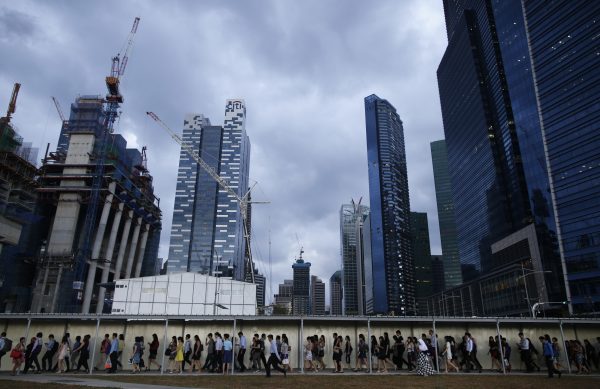Singapore’s ONE Pass has been introduced at a time when several other countries have announced new work and talent visas. The United Kingdom unveiled a High Potential Individual Visa and Germany a Chancenkarte (opportunity card). The Chancenkarte will even allow skilled migrants to enter the country without having already secured a job.
Singapore’s ONE Pass targets the narrower apex of high-income earners — those with regular monthly incomes of at least S$30,000 ($US21,128) — as well as those with ‘outstanding achievements’ across the arts and culture, sports, science and technology, and research and academia.
Some may question the necessity of this new pass, given that Singapore already has a relatively open Employment Pass (EP) scheme that allows companies to bring in professionals and skilled workers subject to a minimum qualifying salary.
The ONE Pass offers added benefits for top talent seeking to live and work in Singapore. It will be valid for five years, longer than the existing EP. The ONE Pass is not tied to a particular employer, providing flexibility for those starting up companies, changing employment or exploring new opportunities. Pass holders’ spouses are also entitled to work with a letter of consent, rather than having to apply and qualify for their own work passes.
For top global talent considering where to live and work, it is hoped that these features will tip the scales in favour of Singapore.
Like many other countries, foreign labour is a sensitive issue in the city-state. Public concern about competition for jobs and even discrimination against local workers prompted Singapore to introduce the Fair Consideration Framework (FCF) in 2014. Under the FCF, employers applying for an EP must first advertise the vacancy on Singapore’s national jobs portal and consider all candidates fairly.
Firms showing evidence of discriminatory hiring practices are placed on a watchlist and their EP applications are subject to closer scrutiny. Companies that fail to improve may have their work pass privileges curtailed. From 1 September 2023, EP applicants must pass a points-based Complementarity Assessment Framework (COMPASS), in addition to meeting the EP minimum salary.
These policy moves may have contributed to a perception among some that Singapore has become less welcoming of global talent, though the city-state’s leaders have stressed that this is not the case.
Singapore remains attractive to global talent as a liveable city and international business hub that is well-connected to regional markets. While Singapore has continued to lure global talent to its shores, the country has in recent years come across as having a diffident approach. To combat this perception, Singaporean Prime Minister Lee Hsien Loong stated that the pass is intended to ‘make top talent everywhere sit up, pay attention and think seriously about coming to Singapore’.
Besides signalling that Singapore is on the hunt for top talent, the pass also addresses pain points that expatriates may face, most notably the withdrawal — just last year — of the letter of consent entitling spouses to work in Singapore.
The introduction of the ONE Pass will be accompanied by other steps to reduce friction in hiring foreign professionals. These include the shortening of the FCF mandatory advertising period from 28 to 14 days and faster processing of EP applications. These moves could be due to the tight labour market as Singapore’s economy recovers from COVID-19.
Given the relatively small group of top talent targeted by the ONE Pass — the qualifying salary is benchmarked to the top 5 per cent of EP holders — it is not expected to produce a large increase in the number of foreign professionals entering Singapore. Still, Singapore’s Manpower Minister Tan See Leng reassured Singaporeans of the government’s commitment to supporting local talent in their professional development, with the aim of helping more attain corporate leadership positions. The ONE Pass, Tan says, will further increase opportunities for citizens through the networks and contributions of top global talent in Singapore.
The COVID-19 pandemic has underscored that the world is not completely borderless. Physical location matters, even if some work can be offshored and business transacted remotely. Leading entrepreneurs, professionals and high achievers will continue to be drawn to cities where there are already deep pools of talent and capital. Studies have found that the agglomeration of talent tends to be self-reinforcing. Singapore is therefore striving to entrench its position as a talent hub.
With the resumption of economic activity and reconfiguration of global supply chains, Singapore’s leadership senses an opportunity to increase the country’s mindshare among the pool of highly mobile international talent. The new ONE Pass may well be the shot in the arm that will help Singapore keep pace with the world’s most attractive talent destinations.
Terence Ho is Associate Professor (Practice) at the Lee Kuan Yew School of Public Policy, National University of Singapore.

